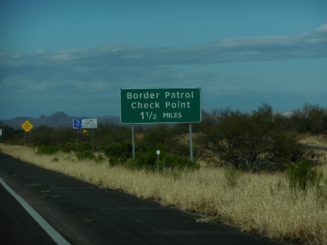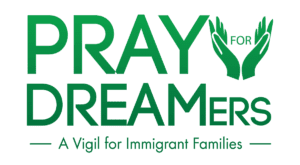
Two years ago, my 5-year-old foster daughter, Julia, and her biological mother, Lupe, were reunited in their home country of Honduras after they were separated for eight months. It was two weeks after the Zero Tolerance policy — where our government forcibly separated parents and children at the border — had ended. We rejoiced that no more children would be separated from their parents, inflicting lifelong trauma on the families. And we rejoiced that Julia and Lupe would be face to face with each other again.
Upon arrival at the border, Julia had been separated from Lupe by the smugglers the family paid $7,500 for transit from Honduras to Reynosa. The smugglers saw Lupe as an economic pawn, and subjected her to sexual violence and abuse. Julia was allowed to cross the border with her stepdad, Carlos, but likely because of Zero Tolerance, the two were separated by Customs & Border Protection. Carlos was deported, and Julia was alone.
I’m reminded of Julia’s story every day. It might be a memory, a photo, her favorite color, or the way my 4-year-old asks a question just like she would have. It might be the WhatsApp message roll that has spanned years between her family and mine. As I hear about family separation taking place again at our southern border, my lament looks a lot like anger, and my sorrow like fury. Because she was my daughter for a short time. But just like water and just like love, people are not possessions. Children are not image bearers we possess. She was my daughter, possessively, one could say, for four months. She is my daughter, collectively, forever.
As I hear about family separation taking place again at our southern border, my lament looks a lot like anger, and my sorrow like fury.
So in my fury and my lament, I turn to my collective family. I look to the long line of women who have gone before me. The women, who, like me, lamented the injustices of their societies, those who knew that Anger and her sister Courage would lead us to Mother Hope herself.
I look to the spiritual mothers who have gone before me, and to those who are still here fighting for Hope. Those who know that hope is not just worth fighting for, but is indeed, the very fight of our faith-filled lives. I look to the women around me, who fight for faith, hope, and love. Those who know that love moves above us and below us, and no border or label or container can hold it. Shiphrah, Puah, Miriam and Pharaoh’s daughter, Deborah, Esther, Mary, Junia, Priscilla. And to Mother Teresa, Juana, Dorothy, Grazia. And to my sisters, Marlena, Michelle, Nikki, Hannah, Christina.
And I look to Julia and Lupe.
Two years ago, 3,000 Christian women joined the fight against forced family separation in solidarity with women at the border. We are here again. We are here, following a long line of Christian women throughout time and history who have stood in between vulnerable children and those who intended to harm them. We add our voices and our actions to those of Shiphrah and Puah. Like them, we don’t accept the laws of the land. We will not abide by those laws, and we will not look away from the harm being inflicted on children who deserve to stay with their families and who deserve safety. Because like Shiphrah and Puah, we know that children don’t have to come from our womb to be our children, collectively.
We are here, following a long line of Christian women throughout time and history who have stood in between vulnerable children and those who intended to harm them.
History is repeating itself. And it’s up to us to demand that our government stops abusing Black and Brown lives—including children who often have no one to advocate for them. It is up to us to stop the potential harm that family separation causes: toxic stress, disruption of brain development, PTSD, anxiety, difficulty sleeping, difficulties in learning, challenges in forming relationships, suicide and suicide attempts.
It’s up to us to change the course of history both within the church and within our society. It’s up to us to prove our pro-life stance is as robust as the gospel itself. That life, at any age, in any body, on any land holds inherent value, imprinted with God’s own likeness giving us reason to fight for it. It’s up to us to remember, like Brenda Salter McNiel says, that our theology informs our anthropology; and if our anthropology is wrong, our theology must change.
So we embrace our sisters Anger and Courage and stand up like our sisters Shiphrah and Puah to push our government stop inflicting lifelong trauma unnecessarily upon our families at the border. Will you sign our petition? Will you tell your representatives in Congress that this is unacceptable? Will you pay attention to other horrible policies in play at the border? Will you pray for the children being turned away without safety protocols in place?
And will you join us in praying a Franciscan Benediction over our government: “May God bless [the government leaders] with anger at injustice, oppression, and exploitation of people, so that [they] may work for justice, freedom, and peace. May God bless [our government leaders] with tears to shed for those who suffer from pain, rejection, starvation and war, so that they may reach out their hands to comfort them and turn their pain into joy.”
 Gena Thomas is a writer, a faith wrestler, a wife, and a mom. She and her husband, Andrew, have been married for 10 years and they have two children, an 8-year-old boy and a 4-year-old girl. Gena works as an instructional designer at a nonprofit that equips local churches in the area of holistic development. She has written for several Christian publications and published her first book, A Smoldering Wick: Igniting Missions Work with Sustainable Practices Her second book, Separated by the Border: A Birth Mother, a Foster Mother, and a Migrant Child’s 3,000-Mile Journey, unpacks the story of reuniting her Honduran foster daughter with her family after separation at the US border.
Gena Thomas is a writer, a faith wrestler, a wife, and a mom. She and her husband, Andrew, have been married for 10 years and they have two children, an 8-year-old boy and a 4-year-old girl. Gena works as an instructional designer at a nonprofit that equips local churches in the area of holistic development. She has written for several Christian publications and published her first book, A Smoldering Wick: Igniting Missions Work with Sustainable Practices Her second book, Separated by the Border: A Birth Mother, a Foster Mother, and a Migrant Child’s 3,000-Mile Journey, unpacks the story of reuniting her Honduran foster daughter with her family after separation at the US border.


